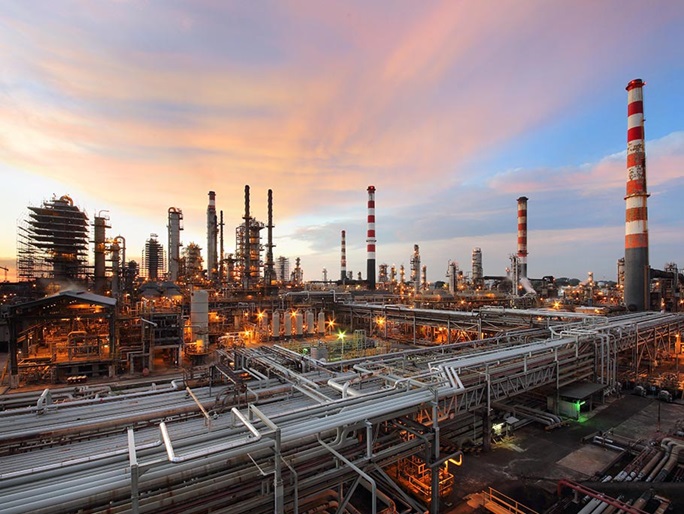Exxon Calls for Carbon Price, Working on CCS Projects Across Asia
SINGAPORE (Reuters) — Exxon Mobil Corp is pursuing carbon capture storage (CCS) hubs across Asia and has started talks with some countries with potential storage options for carbon dioxide, the company's head of low carbon solutions said on Monday.

One of Exxon's key projects is to build CCS hubs in Southeast Asia, similar to one proposed in Houston, Texas, ExxonMobil Low Carbon Solutions President Joe Blommaert told Reuters.
CCS traps emissions and buries them underground but is not yet at the commercialization stage.
CCS advocates, including oil majors and the International Energy Agency, see the technology as being essential to help meet net zero emissions and key to unlocking large-scale economic hydrogen production, although critics say CCS will extend the life of dirty fossil fuels. Melbourne-based Global CCS Institute said in October that global plans to build CCS projects surged 50% over the last nine months.
For CCS to take off, a transparent carbon price and cross-border pricing adjustment systems will be necessary to enable CO2 to be captured in one country and stored elsewhere, Blommaert said in an interview ahead of the Singapore International Energy Week.
"That's why a transparent value of carbon is so important, that it is a durable mechanism, that it is agnostic to what kind of technology that goes ... and that it works across borders because emissions do not know any borders," Blommaert said, adding he expects discussions of carbon border tax similar to that in Europe to occur in Southeast Asia.
"Because much of the world doesn't have carbon pricing, there's a risk that some operators will move to countries that don’t yet price emissions," he told the conference.
Last month, the U.S. energy major said 11 companies have agreed to begin discussing plans that could lead to capturing and storing up to 50 million tons per year (tpy) of CO2 in the Gulf of Mexico by 2030.
"Unlike in Houston, the storage capacity here is not close to the areas with the highest emissions," Blommaert said.
"That's why we've been studying the concept of placing CO2 capture hubs in some of Asia's heavy industrial areas such as here in Singapore and then connecting them to CO2 storage locations elsewhere in the region," he said, adding that CO2 could be transported via pipelines or ships.
Southeast Asia's industrial CO2 emissions exceeded 4 billion tpy, Blommaert said, citing 2019 data from the International Energy Agency.
ExxonMobil has listed Singapore, home to the major's largest refining-petrochemical center globally, as one of its CCS projects. However, Singapore does not have suitable CO2 storage sites, a recent CCS study commissioned by Singapore government showed.
LOCATIONS
Another study by the Singapore Energy Centre, partly founded by ExxonMobil, estimated nearly 300 billion tons of CO2 storage capacity in depleted oil and gas fields and saline formations in Southeast Asia, Blommaert said.
Countries in the region with potential storage sites include Indonesia, Malaysia and Australia where ExxonMobil has oil and gas production facilities. The U.S. major also operates a joint refining-petrochemical complex in eastern China Fujian with Sinopec and Saudi Aramco.
Dwi Soetjipto, the head of Indonesia's upstream regulator SKK Migas, told reporters last week that ExxonMobil is planning a CCS project at its mega Cepu block in East Java.
"We continue to evaluate all options around the world, and that includes some of those locations," Blommaert said, without naming countries.
"If you have a very high concentration of carbon dioxide stream that will represent, possibly a lower cost (for CCS)," Blommaert said.
"The market for CO2 is rather limited when you put it into that scale, and therefore storage of CO2 long term is essential.”
Related News
Related News

- Kinder Morgan Proposes 290-Mile Gas Pipeline Expansion Spanning Three States
- Valero Plans to Shut California Refinery, Takes $1.1 Billion Hit
- Three Killed, Two Injured in Accident at LNG Construction Site in Texas
- Tallgrass to Build New Permian-to-Rockies Pipeline, Targets 2028 Startup with 2.4 Bcf Capacity
- TC Energy Approves $900 Million Northwoods Pipeline Expansion for U.S. Midwest
- U.S. Pipeline Expansion to Add 99 Bcf/d, Mostly for LNG Export, Report Finds
- Enbridge Adds Turboexpanders at Pipeline Sites to Power Data Centers in Canada, Pennsylvania
- Great Basin Gas Expansion Draws Strong Shipper Demand in Northern Nevada
- Cheniere Seeks FERC Approval to Expand Sabine Pass LNG Facility
- Heath Consultants Exits Locate Business to Expand Methane Leak Detection Portfolio




Comments